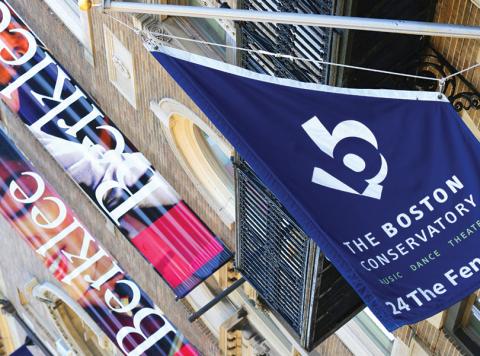Berklee and the Boston Conservatory Discuss a Merger

In June, President Roger H. Brown announced that he and The Boston Conservatory (TBC) President Richard Ortner had signed a memorandum of understanding (MOU) paving the way for an eventual merger. The presidents and trustees of both institutions are exploring the benefits of an affiliation that would create a dynamic and comprehensive program for music, dance, and theater education. The governing boards of each institution voted unanimously to approve the MOU, which calls for a broad-based process of discussion and planning with important stakeholders.
In the MOU, it was agreed that the name of the combined institution would be “Berklee,” with the conservatory being named, “The Boston Conservatory at Berklee.” A merger could take effect in 2016.
The leadership of both schools pursued the MOU after realizing that together, they could create a visionary response to the rapidly evolving needs of 21st century artists. The combined institutions could offer students a unique environment in which to build the foundation of their life’s work.
Within a new Berklee organization, TBC’s highly regarded programs in music, dance, and musical theater would retain autonomy, while giving Berklee students access to a uniquely-designed curriculum—especially in dance and theater. Similarly, TBC students would have access to Berklee’s curriculum in jazz and contemporary music, technology, music business, music therapy, sound design, production, film scoring, and online education. TBC faculty members will also have the opportunity to develop courses for Berklee Online. Both schools are committed to expanding online education as a means of addressing college affordability.
“Our conservatory students want access to the rich performance traditions of other cultures and other genres, as well as access to industry-standard digital infrastructure,” said TBC President Richard Ortner. “Berklee offers exactly that global outlook and that range of opportunity.”
Both schools have undergone significant growth in the past decade, building new facilities and performance spaces, strengthening community partnerships, and enriching academic programming. Berklee has expanded its curricular offerings with online courses and degrees, multidisciplinary institutes, graduate programs, an increased focus on technology and entrepreneurship, and a campus in Valencia, Spain. TBC’s contemporary dance program was just named “best in the country” by OnStageblog.com. The TBC musical theater program has long been considered one of the best in the nation and TBC’s music programs are renowned across the globe.
The combined campus would also provide new opportunities for academic collaboration: a first-ever program in jazz dance, allowing TBC dancers to work directly with the students of Berklee’s Global Jazz Institute; songwriting and new theater-works programs that take advantage both of Berklee’s expertise in contemporary song and the TBC’s depth in theater and stagecraft studies. As well, collaboration between ensembles from each school would facilitate combinations that would blur style and genre lines.
“This is a tremendous opportunity for Berklee to lead in the creation of a new model for the education of contemporary musicians and performing artists,” Brown stated. “I am energized to do the hard work to envision and realize this for our current and future students.”




